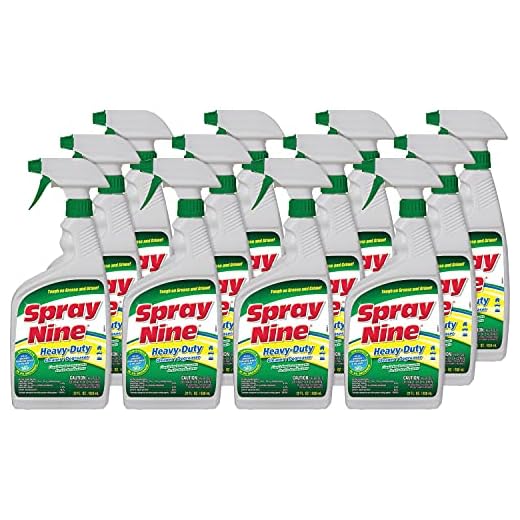



For achieving a spotless result on outdoor surfaces, I recommend using a vinegar and baking soda mixture. This natural solution effectively breaks down grime and stubborn stains while being safe for various materials. Simply mix one part vinegar with one part water, then sprinkle baking soda on the surface. Scrub gently with a brush, rinse thoroughly, and watch the transformation.
If you’re dealing with oil or grease, opting for a solution that contains citrus-based degreasers is wise. These cleaners are powerful against oily residues yet gentle enough to avoid damaging surfaces. Look for formulations that are biodegradable for an environmentally friendly approach. Apply according to instructions, allow a few minutes for the solution to penetrate, and follow with a good scrub.
For mildew or algae issues, a mixture of hydrogen peroxide and water comes highly recommended. This combination not only tackles tough fungi but is also safe for the environment. A ratio of one part hydrogen peroxide to ten parts water works effectively. Spray it on the affected areas, let it sit for a while, and rinse to discover a surprisingly clean surface.
Regardless of the method chosen, ensure to test any cleaner on a small, inconspicuous area first. This step is crucial to prevent unexpected damage to your surfaces. Maintenance of your outdoor areas can be effortlessly achieved with the right techniques and products. Happy cleaning!
Understanding Different Types of Patio Cleaners
Choosing the right solution for terrace maintenance is essential. Based on extensive testing, I often recommend different formulations based on the specific type of material. For instance, if your surface is made of stone, an alkaline cleaner effectively breaks down grime, while acidic formulas work wonders on mineral deposits.
For wooden decks, opt for a gentle, biodegradable solution to avoid damage. Products enriched with natural ingredients can clean without stripping the wood’s protective oils. Always check for compatibility, as harsh chemicals may discolour or weaken the structure.
Environmentally friendly choices have become popular among users looking to minimise their ecological impact. Enzyme-based cleaners contain natural biological agents that digest organic matter. They perform well in removing stains caused by algae and moss. Additionally, they are safer for pets and plants surrounding your outdoor space.
For tougher challenges like oil or grease stains, a heavy-duty degreaser can be beneficial. Look for industrial-grade solutions that target stubborn marks without excessive scrubbing. These products often come in concentrated forms, allowing for custom dilution based on severity.
Foaming agents provide another option, especially for vertical surfaces. The foam clings and penetrates, loosening dirt effectively before rinsing. A good foam cleaner allows for longer dwelling time, enhancing its cleaning performance.
Lastly, disinfectants can be valuable for areas prone to mildew or bacteria, particularly if you have outdoor dining spaces. Products with chlorine or hydrogen peroxide can sanitise surfaces while also cleaning them. Always ensure thorough rinsing to avoid residue.
Key Ingredients to Look for in Patio Cleaners
Look for biodegradable surfactants in formulations, as they effectively break down dirt and grime while being environmentally friendly. These components ensure a thorough clean without leaving harmful residues.
Enzymatic cleaners offer a unique advantage by using natural enzymes to target organic materials such as grease, algae, and moss. This method is efficient, safe for the surface, and contributes to a deeper clean.
Oxygen bleach is another ingredient to consider. Unlike chlorine bleach, it is less aggressive on surfaces yet powerful enough to tackle tough stains, providing a safe alternative for maintaining aesthetics.
Antimicrobials prevent the growth of mould and mildew, which can accumulate on outdoor surfaces. Their inclusion ensures that not only is dirt removed, but future growth is inhibited as well.
Readily available options utilise citrus or vinegar-based solutions, which are natural and effective. These ingredients cut through grime while leaving a pleasant scent, making the cleaning experience more enjoyable.
Always check for pH-balanced formulas. These cleaners are gentle on your surfaces, helping to maintain their integrity while delivering adequate cleaning power.
| Ingredient | Benefits |
|---|---|
| Biodegradable Surfactants | Safe for the environment, effective on dirt |
| Enzymatic Cleaners | Targets organic materials, deep clean |
| Oxygen Bleach | Safe, effective on tough stains |
| Antimicrobials | Prevents mould and mildew growth |
| Citrus or Vinegar-based | Natural, pleasant scent |
| pH-balanced | Gentle on surfaces, maintains integrity |
Step-by-Step Guide to Using Patio Cleaners
For optimal results, follow this structured approach when using a cleaning solution for outdoor surfaces.
Preparation
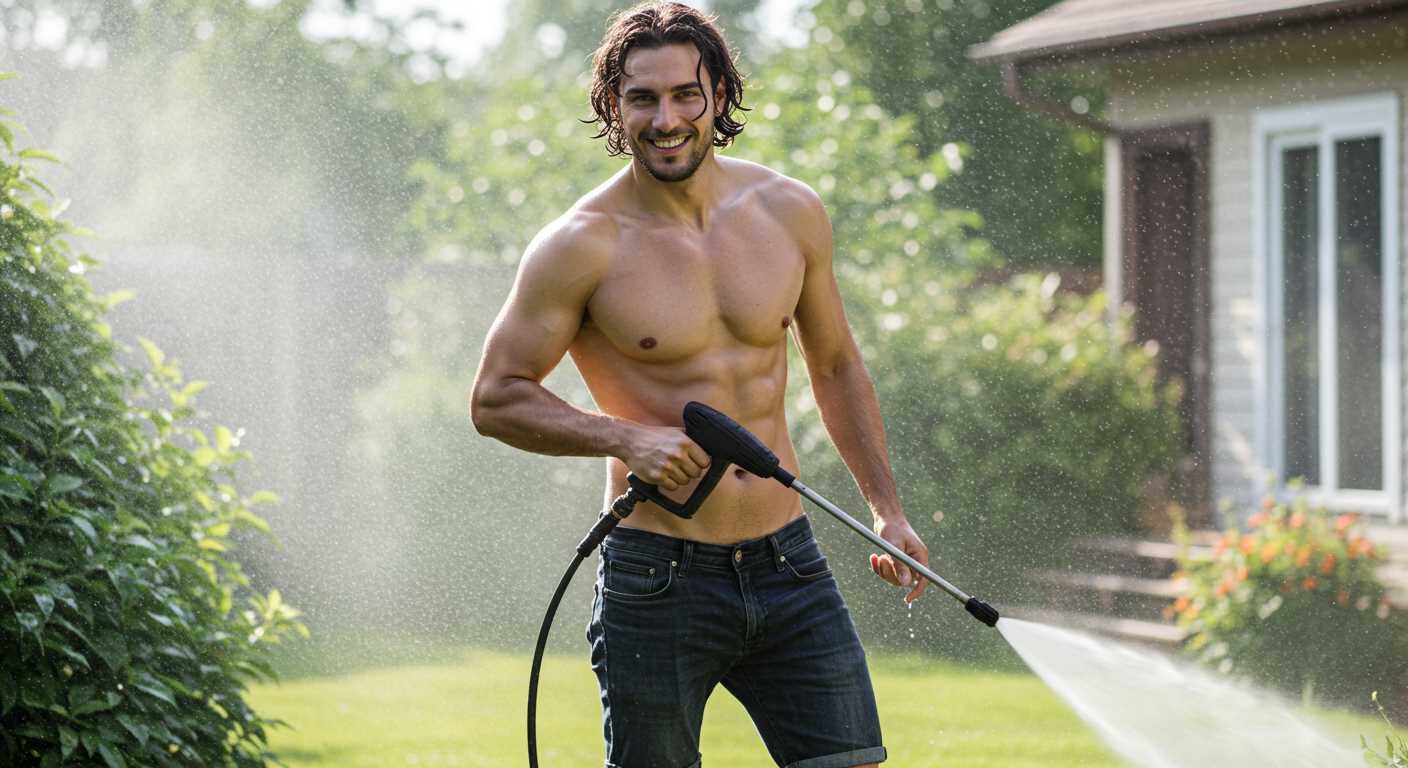
- Clear the area: Remove any furniture, pots, or debris from the surface.
- Check the weather: Ensure the forecast is dry to allow for effective drying post-cleaning.
- Read instructions: Familiarise yourself with the product label for specific guidelines.
Application
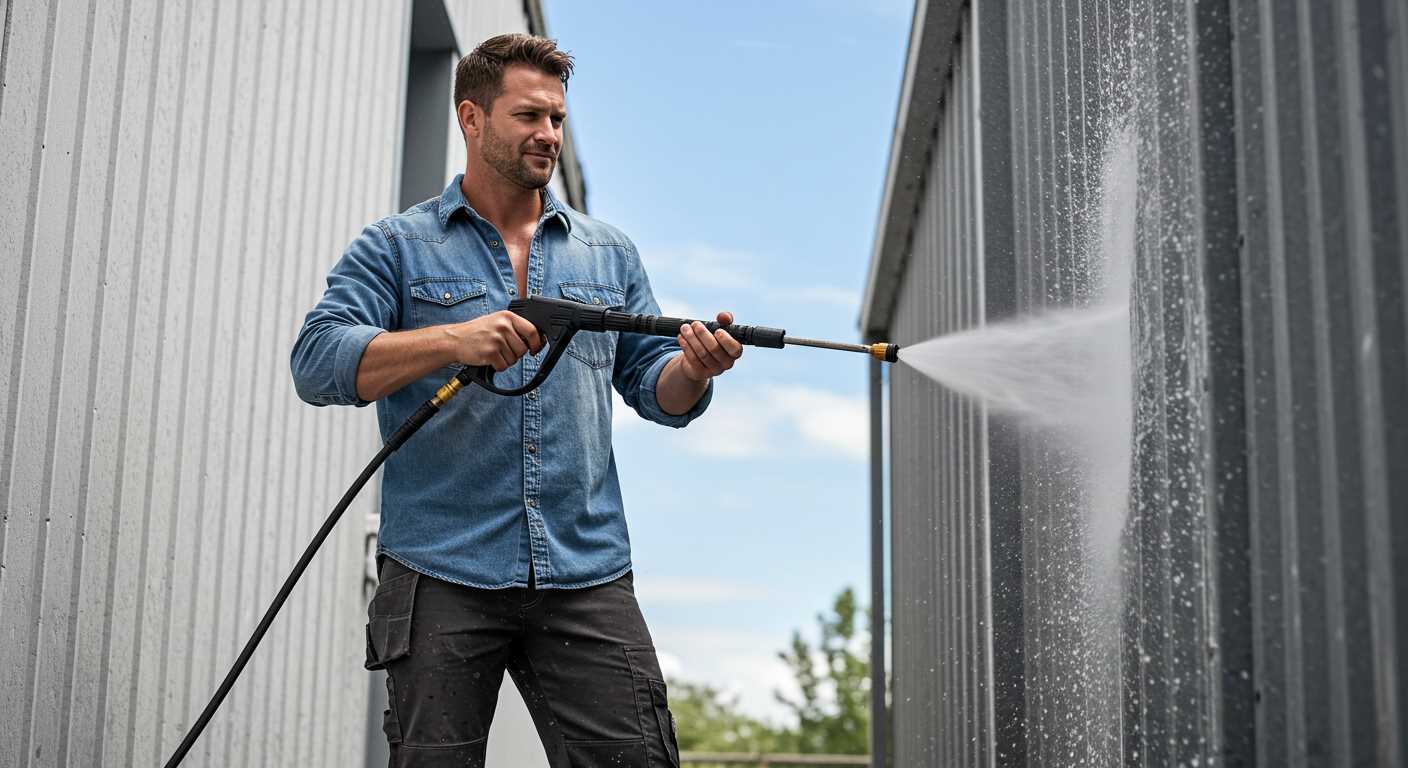
- Dilute if necessary: Some formulations require mixing with water. Adhere to the recommended ratios.
- Spot test: Apply in a small, discreet part to confirm compatibility with your surface.
- Apply the solution: Use a sprayer or a mop to distribute evenly over the area.
- Let it sit: Allow the product to penetrate, usually for 10-15 minutes, as per the instructions.
Agitation
.jpg)
- Scrub: For stubborn stains or heavy deposits, use a stiff-bristled brush, focusing on affected areas.
- Follow patterns: Work in manageable sections to ensure thorough coverage.
Rinsing
- Rinse off: Use a hose with ample water pressure to wash away residues completely.
- Repeat if necessary: For particularly difficult spots, a second application may be needed.
Post-Cleaning Care
- Allow drying: Let the surface dry fully before returning furniture or other items.
- Inspect: Check for any remaining dirt or stains and address them individually if required.
This method will help achieve a clean and safe outdoor space, ready for use.
Comparing Homemade vs. Store-Bought Solutions
Homemade mixtures often utilise everyday ingredients and can be quite cost-effective. A blend of vinegar, baking soda, and water provides a natural yet robust cleaning agent that tackles mildew and dirt without harsh chemicals. This approach is particularly favourable for those sensitive to strong fragrances or environmental concerns. I recommend starting with a solution of one cup of vinegar and half a cup of baking soda mixed with water to fill a spray bottle. Apply it generously and scrub with a stiff brush after letting it sit for about 15 minutes.
Store-Bought Products
Commercial formulas typically offer specialised ingredients designed for targeted results. Many formulations include enzymes or surfactants that break down grime efficiently. Brands often incorporate built-in anti-fungal components, which can significantly enhance long-term cleanliness. When selecting a product, look for ingredients like sodium hypochlorite or oxygen bleach, which are effective against stubborn stains. Follow the manufacturer’s instructions closely to optimise results, ensuring thorough application and adequate dwell time for effective cleaning.
Final Considerations
Ultimately, the choice hinges on personal preference and specific cleaning needs. Homemade solutions are excellent for lighter tasks or regular upkeep, while store-bought options excel in more heavy-duty scenarios. Testing a small area with either method is wise, allowing you to assess efficiency while ensuring safety for your surfaces. Balance convenience and effectiveness based on your unique circumstances for optimal results.
Safety Precautions When Using Outdoor Surface Cleaners
Always wear protective gear such as gloves and goggles to shield your skin and eyes from splashes that may occur while applying cleaning solutions. The chemicals in some products can be harsh, so personal protection is crucial.
Ensure proper ventilation in the area where you are working. If using strong solvents or bleach-based solutions, working outside or in a well-ventilated space reduces the risk of inhaling harmful fumes.
Handling and Storage
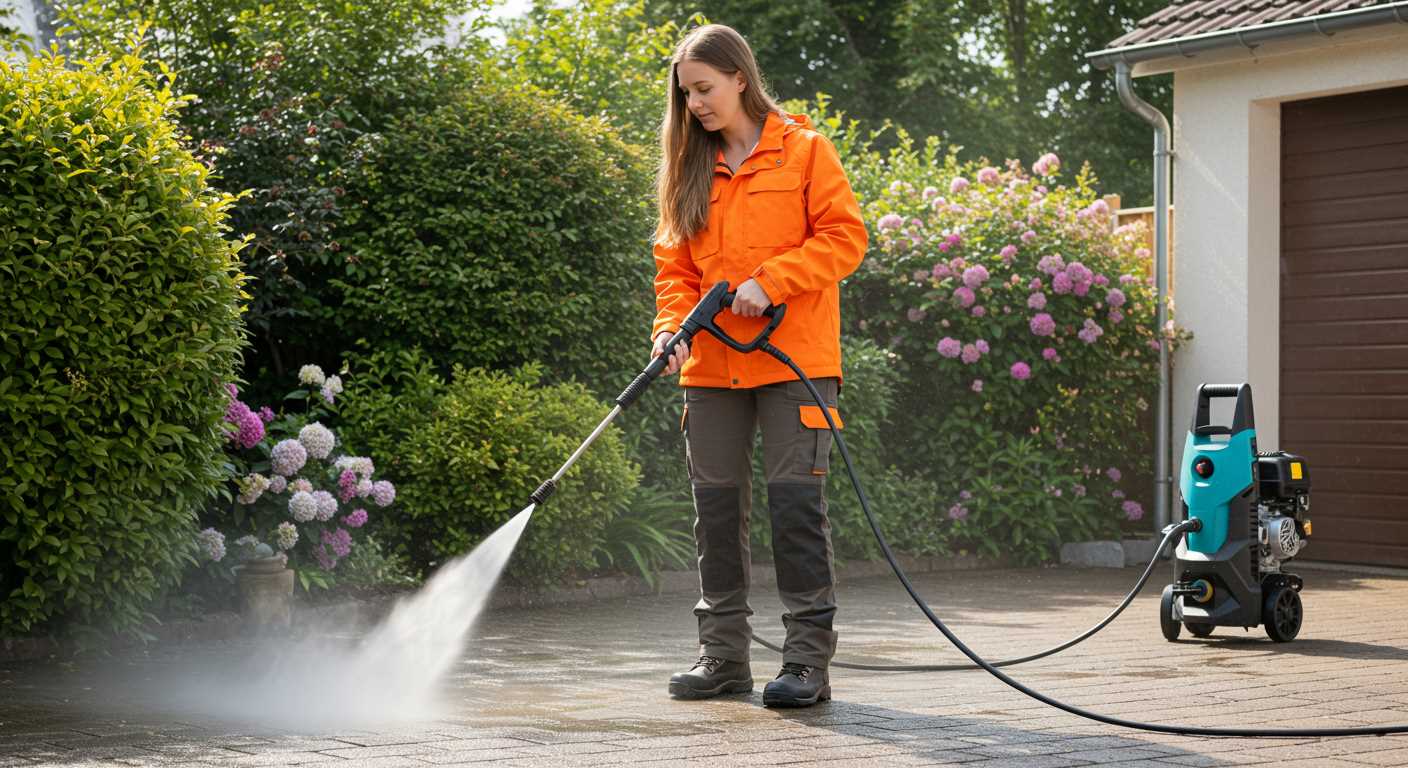
Before using any cleaning agents, read the instructions and safety data sheets carefully. This will provide information on safe handling practices and necessary precautions. When storing these products, keep them in their original containers with labels intact, away from children and pets.
Do not mix different types of cleaners, as chemical reactions can produce harmful gases. Always rinse equipment thoroughly after use to remove any residues that could cause reactions if stored for prolonged periods.
First Aid Measures
In case of skin contact, rinse the affected area immediately with plenty of water. If irritation persists, seek medical attention. For accidental eye exposure, flush with water for at least 15 minutes and consult a healthcare professional. If inhalation occurs, move to fresh air and seek medical help if symptoms continue.
Maintaining a Clean Outdoor Surface After Treatment
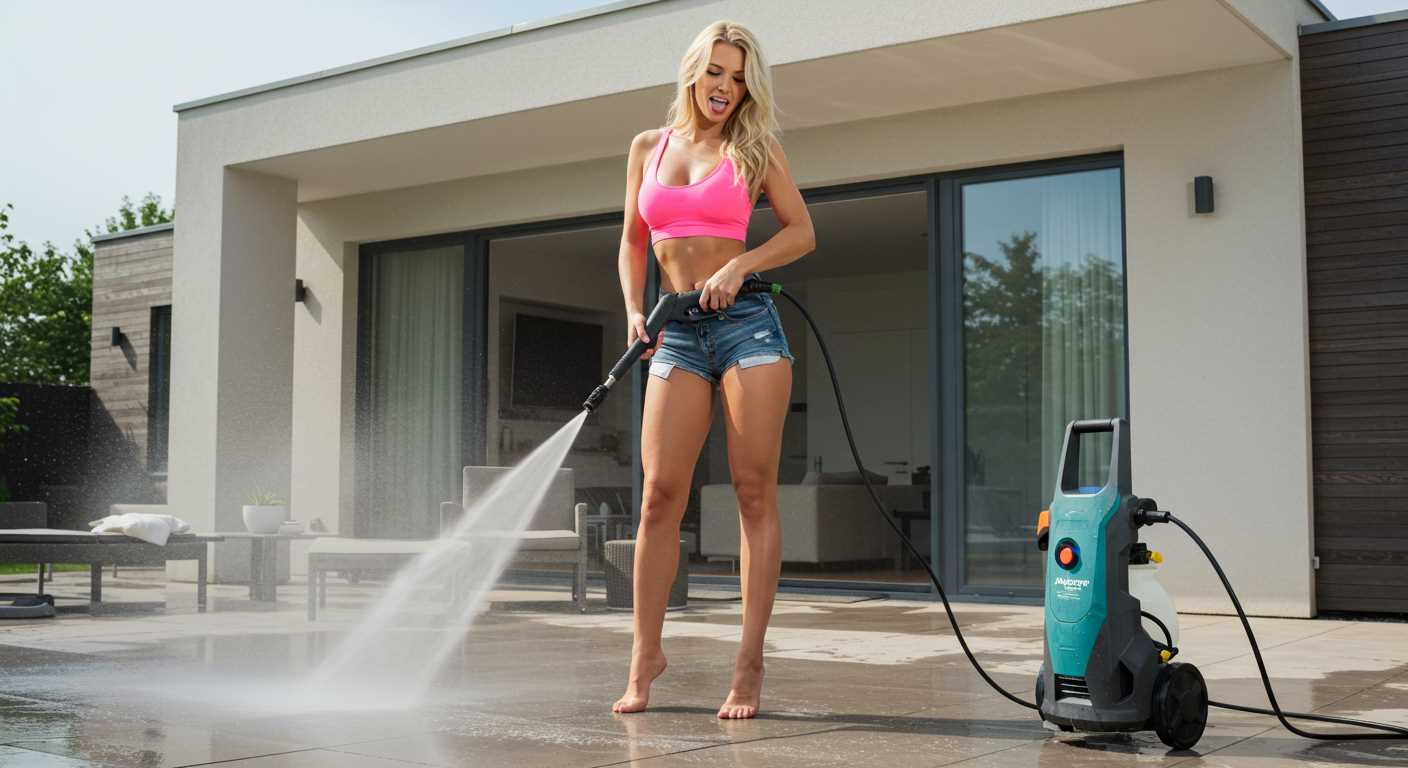
To keep your outdoor area looking pristine following cleaning, a consistent maintenance routine is essential. Regular upkeep helps prevent grime from reaccumulating and maintains the results of your cleaning efforts.
Regular Sweeping and Brushing
- Schedule weekly sweeping to remove debris such as leaves, dirt, or dust.
- Use a stiff-bristled broom or brush to reach into crevices where dirt tends to accumulate.
Routine Spot Cleaning
- Immediately address stains or spills using a lightly soapy water mixture.
- Keep a dedicated cloth or sponge for spot cleaning, which prevents larger stains from setting in.
Consider Protective Treatments
After cleaning, applying a sealant can provide an effective barrier against dirt and stains. Look for products designed specifically for your surface type, ensuring compatibility and longevity.
Seasonal Deep Cleaning
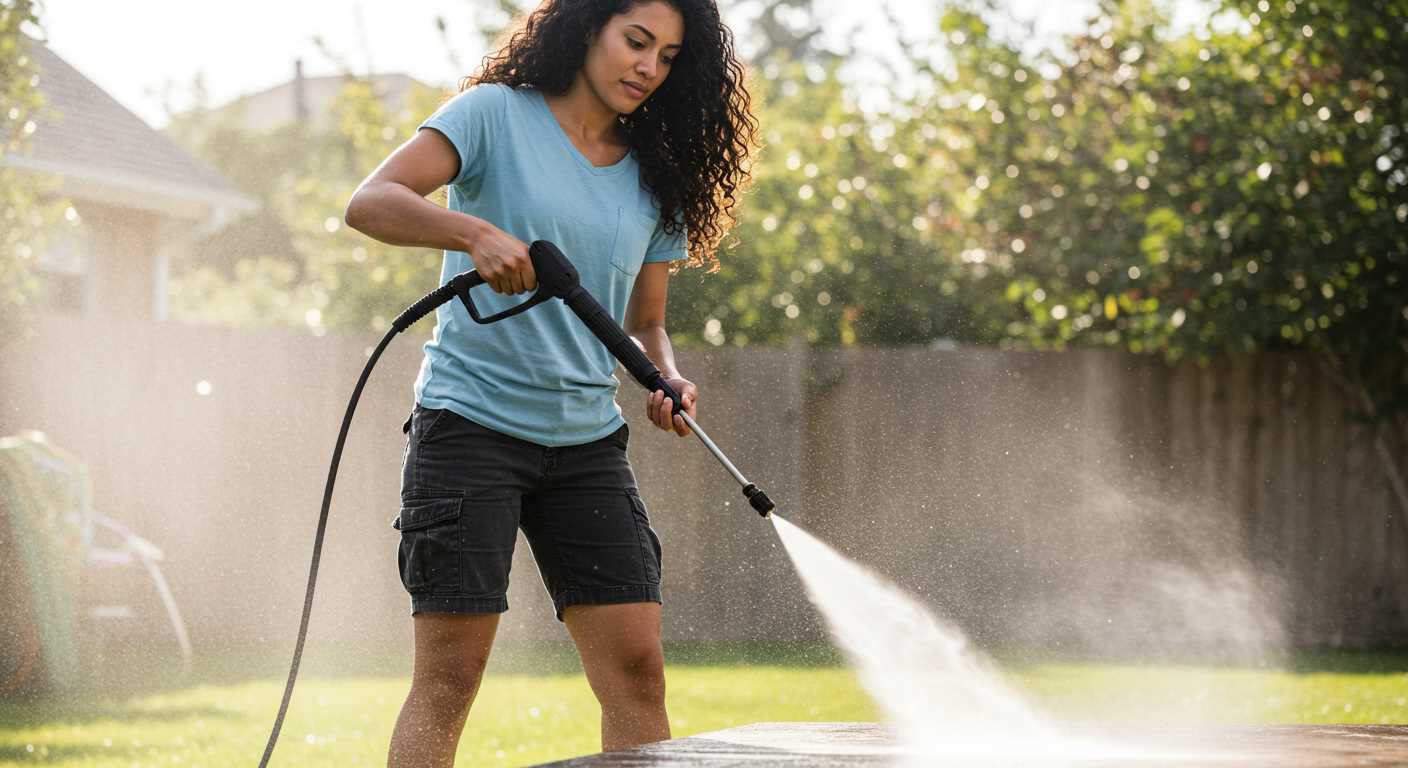
- Recycle basic cleaning steps at least twice a year to tackle more significant build-up.
- Choose a moderate weather day to ensure products can effectively dry and work optimally.
Establishing these habits not only enhances the appearance of your outdoor area but also extends the longevity of your surfaces, providing a welcoming space for gatherings or relaxation.






